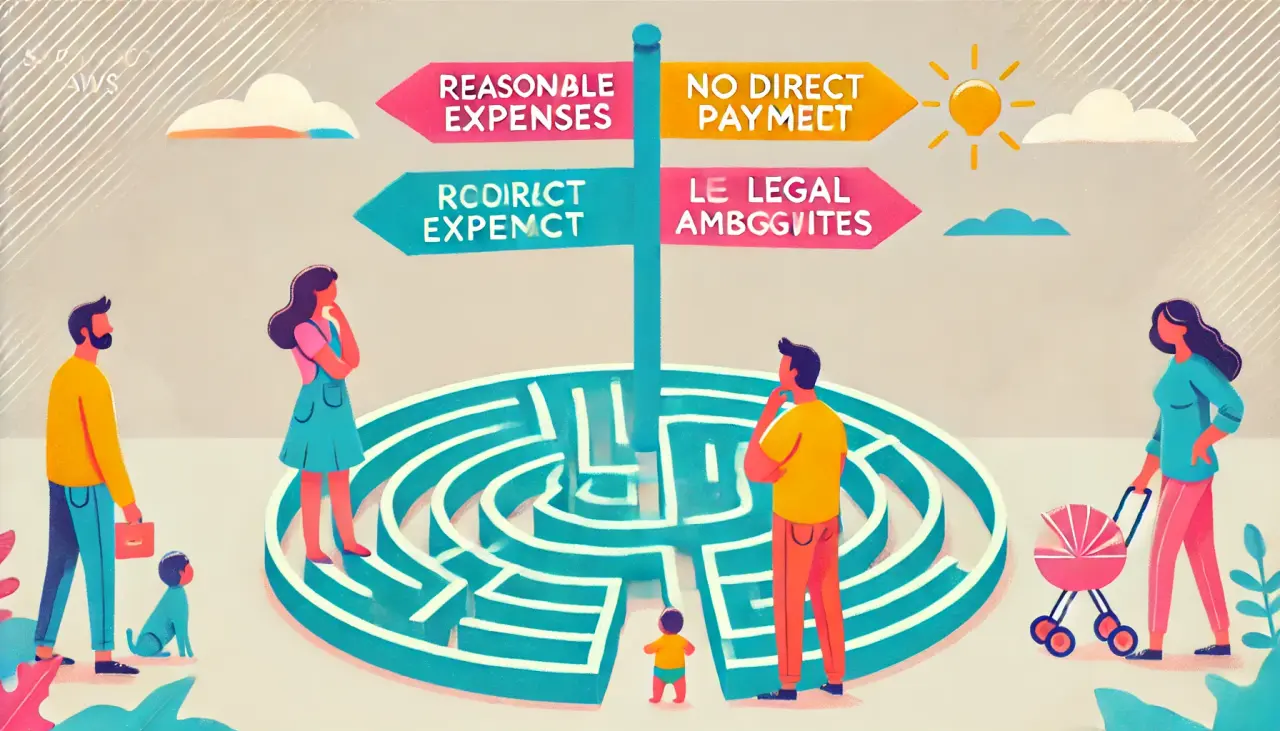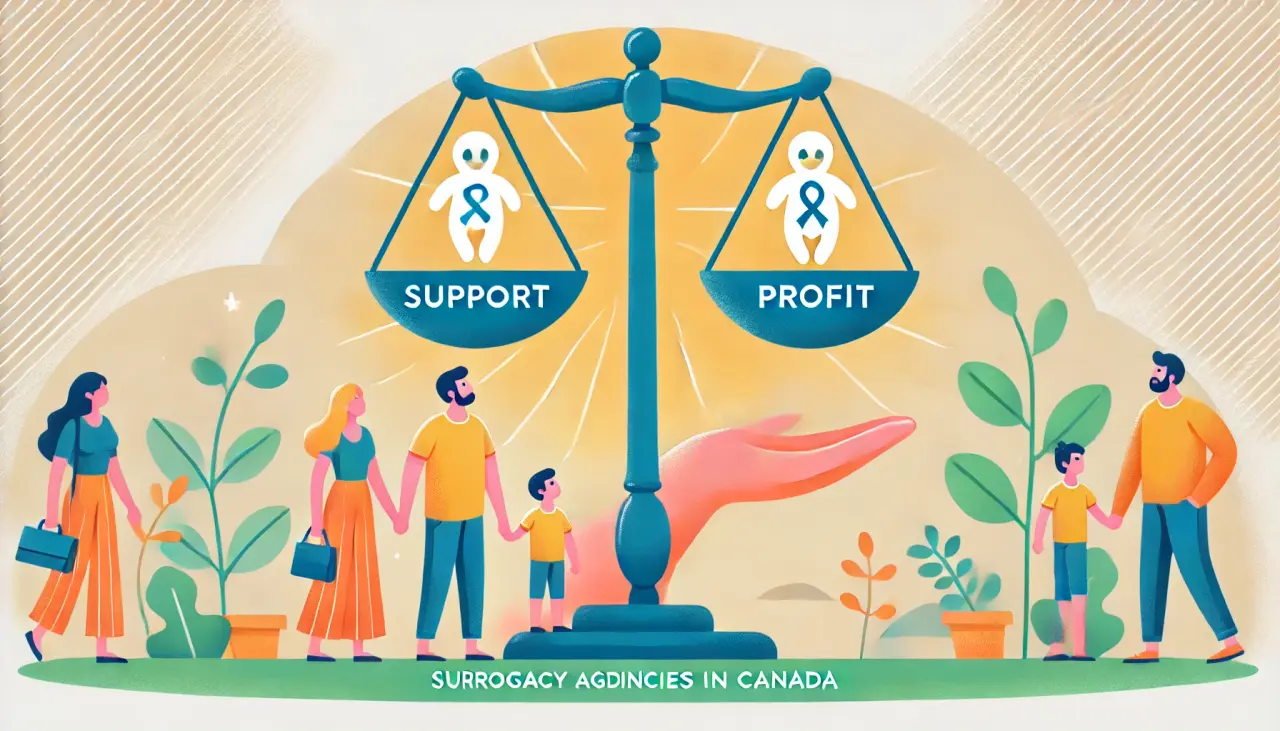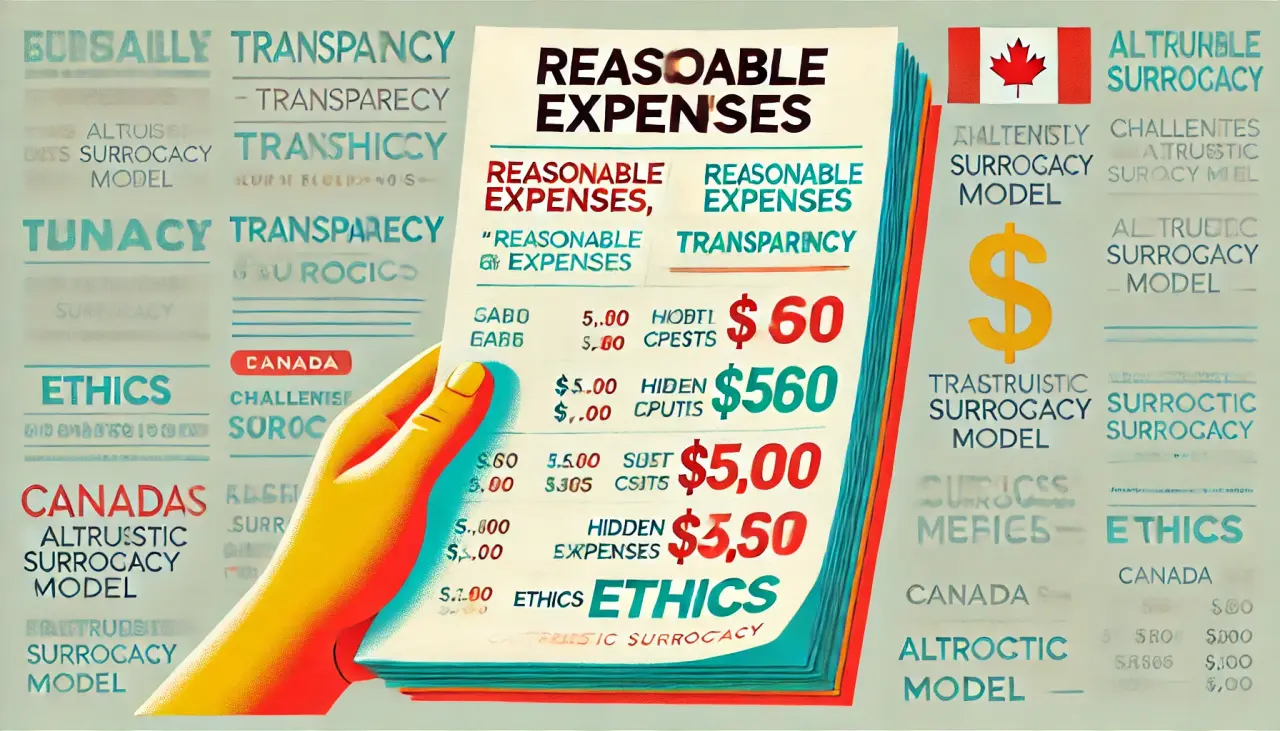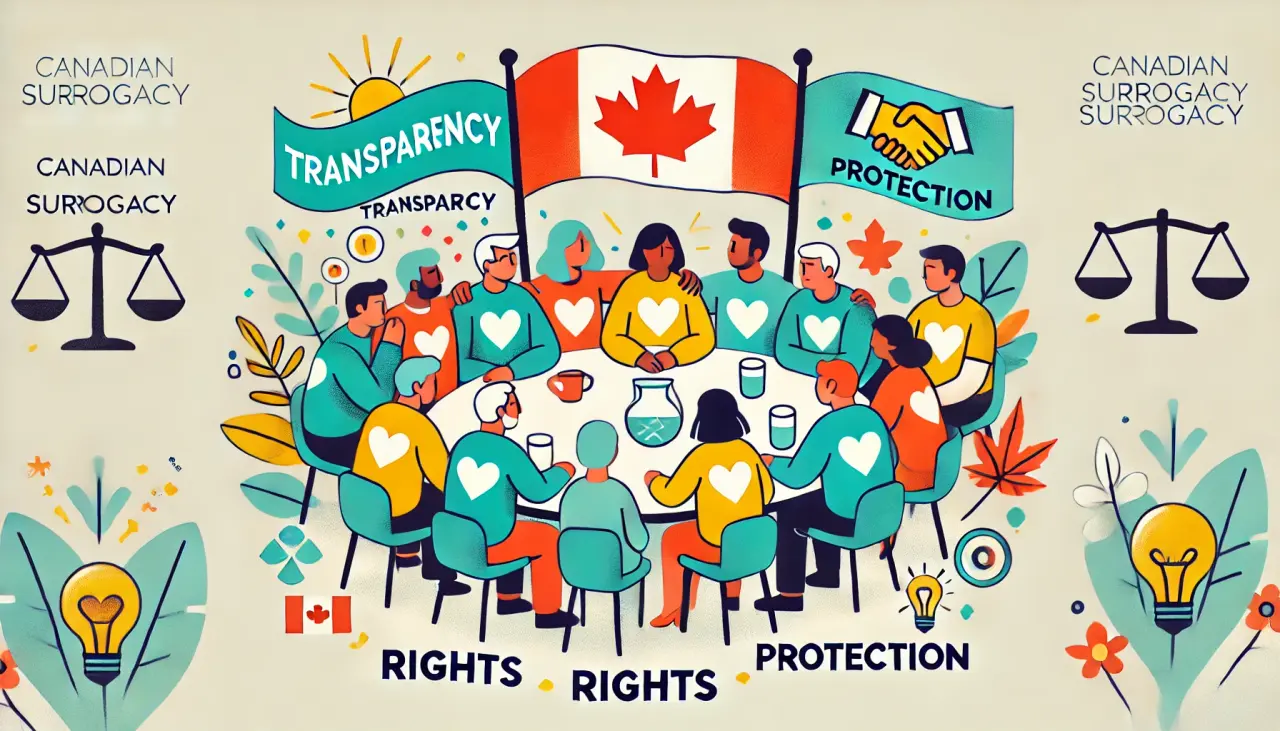
The Dark Side of Surrogacy in Canada: The Altruistic Facade of Canadian Surrogacy Agencies
Surrogacy in Canada whispers promises of hope to those yearning for a child, like a gentle lullaby of compassion and kindness. Yet beneath this tender facade lies a web of complexities, woven with threads of ethical dilemmas, hidden financial motives, and a legal landscape riddled with loopholes. Inspired by the work of Canadian journalist Alison Motluk, we journey into the shadows of Canada’s surrogacy industry to uncover the deeper truths of this altruistic veil. Here, we explore not only the impact on the intended parents and surrogate mothers but also the intricate maze of regulations that shape this controversial path.

Introduction to the Complex World of Canadian Surrogacy
Surrogacy, in its essence, is an act of profound selflessness—a willingness to carry life, for another. In Canada, however, this act of generosity is far more intricate, bound by legal restraints and cloaked in altruistic intentions. Canadian surrogacy, though promoted as a noble option for those facing infertility, is built upon layers of ethical and emotional challenges that both intended parents and surrogates must navigate.
Unpacking the Legal Landscape of Surrogacy in Canada
The legal framework surrounding surrogacy in Canada is anything but clear. Governed by the Assisted Human Reproduction Act (AHRA) of 2004, surrogacy operates within a set of rules that prohibit commercial profit. The AHRA stipulates that while surrogates can receive reimbursements for reasonable expenses, direct payment for carrying a child is forbidden. However, this seemingly simple rule gives rise to a labyrinth of legal ambiguities.

Understanding Altruistic Surrogacy in Canada
Under the AHRA, altruistic surrogacy allows for the reimbursement of a surrogate’s out-of-pocket expenses. On paper, this sounds like an ethical safeguard against exploitation, but in practice, it leaves ample room for interpretation. It begs the question: Is altruism enough when surrogacy involves such profound physical and emotional commitment?
Surrogacy Agencies: Bridging Gaps or Exploiting Loopholes?
In response to growing demand, Canadian surrogacy agencies have sprung up across the nation, often charging steep fees for their services. These agencies connect surrogates with intended parents, guiding them through the complex process. Yet, some agencies operate in the shadows, navigating around restrictions to profit indirectly. This blurred line between assistance and exploitation reveals a need for clearer boundaries and regulatory oversight.
The Growing Demand and Scarcity of Surrogate Mothers
As demand rises, the number of women willing to become surrogate mothers remains limited. This shortage of willing surrogates in Canada creates a pressing issue, as hopeful parents wait months, sometimes years, for a match. This scarcity reflects a deeper societal hesitation, as women weigh the altruistic pull against the potential risks and sacrifices.
Transparency in the “Reasonable Expenses” Clause
Transparency is often promised yet seldom delivered in Canada’s surrogacy agreements. While surrogate mother compensation in Canada is not allowed in the form of direct payment, the definition of “reasonable expenses” remains loosely interpreted. Some agencies include inflated or ambiguous fees, creating an industry that quietly profits from the dreams and struggles of both surrogates and intended parents.

Ethical Challenges in Canadian Surrogacy
At the heart of Canadian surrogacy lies an ethical conundrum: Can altruism exist without hidden costs? The altruistic model, meant to remove financial motivation, paradoxically fuels financial ambiguity. Critics point to a “false altruism,” where surrogates feel compelled to give, with emotional support masking the reality that their sacrifices often go undercompensated and underappreciated.
Exploring the Reality of “Altruistic” Intentions
When financial incentives are subtle yet present, they blur the boundary between altruism and commercial exchange. Canadian surrogacy may outwardly reflect an altruistic approach, but many surrogates express feelings of exploitation, as they shoulder the emotional and physical burden with little more than kind words as compensation.

Emotional and Financial Strains on Intended Parents
For intended parents, Canadian surrogacy is a journey of love and, at times, heartbreak. They invest financially and emotionally, only to be caught in a system where agencies and legal constraints hinder transparency and certainty. This journey can drain their resources and resilience, as they are bound to agencies that sometimes operate in a grey zone.
The Psychological Impact on Surrogate Mothers
Surrogates often face emotional turmoil, as their altruism is tested by a society that praises their compassion while offering little tangible support. With little compensation and an extensive physical toll, surrogates find themselves grappling with a system that recognizes their sacrifices yet fails to fully support them.
Health and Safety Risks for Surrogates
Pregnancy is a physically demanding process, with risks that can affect a surrogate’s long-term health. Without financial support, many surrogates feel neglected, as they cannot access the same level of healthcare or postnatal care as those in other nations where surrogacy is more fully supported.

International Surrogacy: The Complexities and Legalities
As Canadians turn to international options, they enter a legal maze with implications that vary by country. While intended parents in Canada seek solutions abroad, they often face unexpected legal battles over parental rights, citizenship, and ethical concerns.
The Role of Advocacy Groups and Reproductive Rights in Surrogacy
Various advocacy groups are pushing for greater transparency and protection for both surrogates and parents. These organizations emphasize reproductive rights and work towards ethical surrogacy practices, aiming to reform the current legal structure to protect those involved more fully.
Proposed Solutions for a Fairer Surrogacy System
For surrogacy in Canada to thrive ethically, there must be reform. Clearer guidelines for expense reimbursements, a standardized fee structure, and transparent agency practices would create a system that respects the dignity of surrogates and offers peace of mind to intended parents.

Moving Towards Transparency and Ethical Reform
Canada’s surrogacy industry stands at a crossroads, with the potential to evolve into a system that values transparency and ethics. By fostering open dialogue and advocating for clearer regulations, Canada can lead the way towards a fair and supportive environment for all involved.
Conclusion: A Compassionate yet Complicated Path Forward
The path of Canadian surrogacy is lined with compassion, yet it’s fraught with complexities that beg for reform. By lifting the veil on altruistic surrogacy and embracing transparent practices, Canada can establish a surrogacy framework that honors both the surrogate’s gift and the parent’s dream.
FAQs
- What are the main legal restrictions on surrogacy in Canada?
The AHRA restricts commercial surrogacy, allowing only for altruistic surrogacy with reimbursement for reasonable expenses. - Is compensation allowed for surrogate mothers in Canada?
Surrogates cannot receive direct payment but can be reimbursed for reasonable expenses related to the pregnancy. - Why is there a shortage of surrogates in Canada?
The shortage stems from the lack of financial incentive and the demanding physical and emotional commitment required. - What challenges do intended parents face in Canadian surrogacy?
Intended parents face high agency fees, long wait times, and limited transparency, all while navigating a complex legal framework. - How can Canada improve its surrogacy system?
Reforms to improve transparency, establish clear reimbursement guidelines, and support surrogate health and well-being could enhance the Canadian surrogacy system.